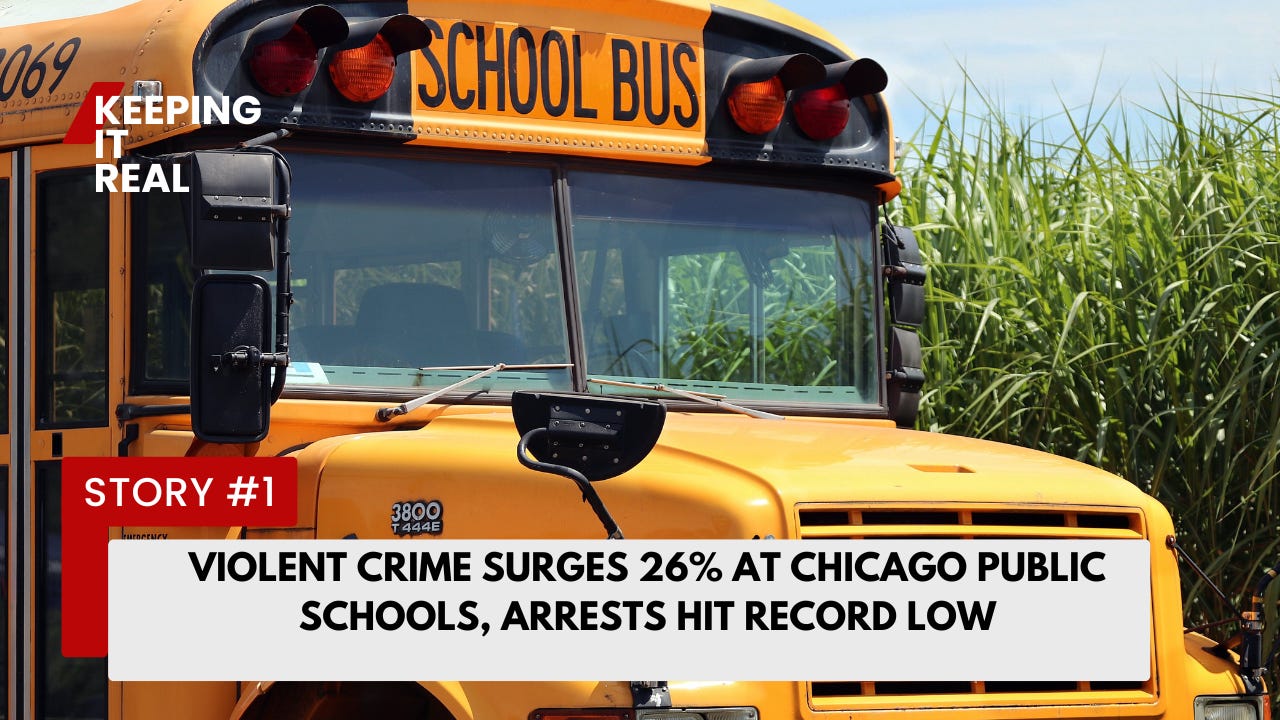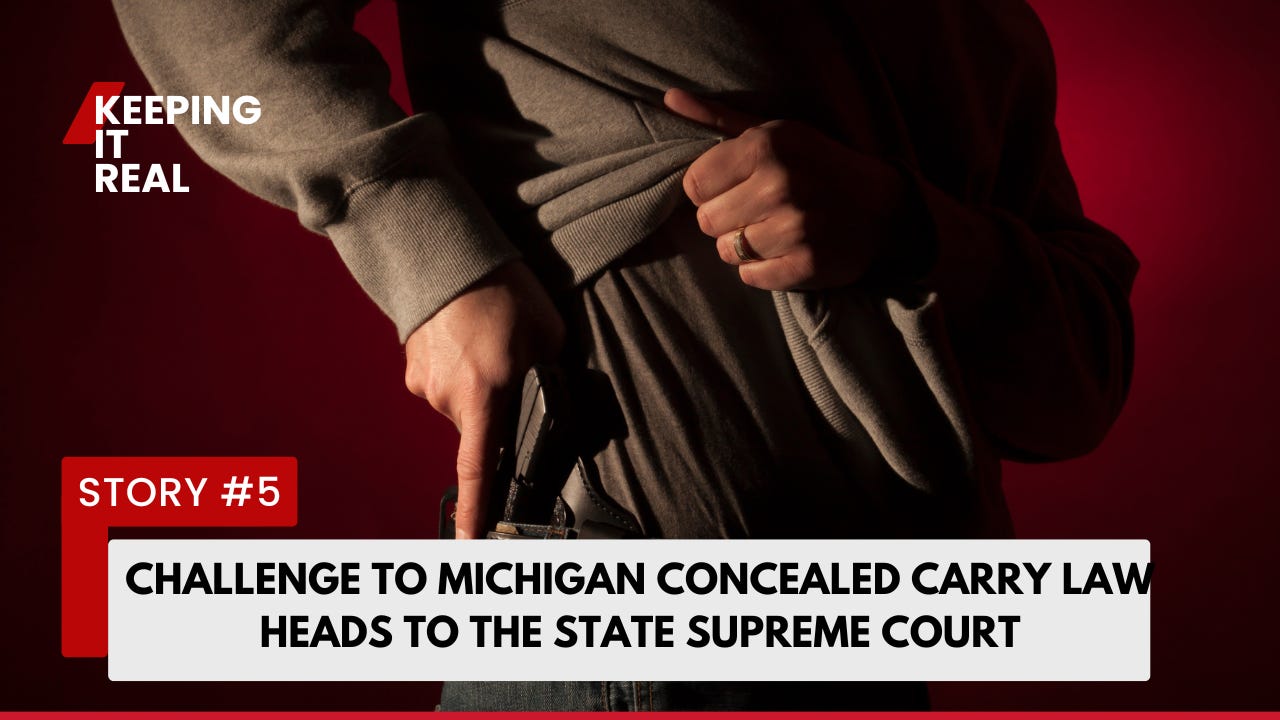Please support my independent journalism by making sure I can send this free newsletter every morning. It’s $5 a month, and you can quit at any time. I walked away from a high-paying job in the MSM to go independent. If you haven’t already done so, please do so.


CHICAGO, IL - Chicago Public Schools saw violent crime increase 26% in 2023 and arrests hit a record low of 8%. Now thanks to pressure from the Chicago Teachers Union and Mayor Brandon Johnson, police are being removed from schools.
Violent crimes were up 26% last year in Chicago Public Schools – hitting the total seen before the pandemic combined with Chicago Teachers Union actions put students out of classes for over a year.
But another development in 2023 is especially disturbing because CTU and Mayor Brandon Johnson, an ex-CTU employee, succeeding in getting the last members of the Chicago Police Department booted from the few schools where they remained. With 224 violent crimes in schools last year, only 18 arrests were made – a record low rate. Click here to read more.

WASHINGTON D.C. - The Boy Scouts of America is changing its 114-year-old name, according to a statement from the tech sector CEO who runs the fabled organization, in what seems to be a bid to deny the reality that boys are different from girls.
The new sexually-neutral name –“Scouting America” — will send “a really strong message to everyone in America that they can come to this program, they can bring their authentic self,” said Roger Krone, the organization’s president and CEO.
Krone’s “authentic self” phrase matches language used by transgender activists who oppose the public recognition that boys and girls, women and men, have different needs and desires. The pro-transgender activists insist that young children can create their individual sexual persona and “gender,” regardless of their male or female nature. Click link to read more.

WASHINGTON D.C. - A new report from the World Bank called for resources to be allocated away from producing red meat and dairy to focus production on low-carbon foods, which could lead to an increase in prices for some foods.
In a new paper, the World Bank noted wealthy nations should switch from high production of red meat and dairy, which produce high levels of carbon dioxide and are dangerous for accelerating climate change, to producing more foods such as chicken, fruits, and vegetables. It argued the switch to chicken and plant-based production is one of the more cost-effective ways to curb climate change. Click here to read more.

SEATTLE, WASH — A few dozen people remain at an encampment for asylum seekers and refugees at a Seattle park where officials have now posted notices advising the area will be cleared later this week.
According to the signs at Powell Barnett Park, people who are camping there have to remove their belongings by Thursday morning or they will be cleared by the city.
Around 200 people had been staying in the park since last week when funding ran out for the Kent hotel where they were living.
On Monday, city crews helped dozens of migrants from the encampment to move back to the Quality Inn on Wheeler Road in Kent. The Seattle mayor's office confirmed Tuesday afternoon that the city is funding the migrants' hotel stay through June 30. Click here to read more.

LANSING, Mich - Michiganders could soon learn if the state’s concealed gun law violates the U.S. Constitution.
“Even if you’re not concerned about gun rights, I think we’re all concerned with how the U.S. Constitution gets interpreted,” attorney Roland Lindh told WEMU.
Lindh is representing Kimberly Erin Langston, who filed an application on Monday to appeal a decision by the Michigan Court of Appeals last month that found the state’s concealed gun law comports with U.S. Supreme Court’s interpretation of the Constitution.
Langston is charged with illegally carrying a concealed weapon in her purse without a permit as a passenger during a traffic stop in South Haven in April 2023. Langston moved to dismiss the case based on the U.S. Supreme Court ruling in New York State Rifle & Pistol Association v Bruen, which found the government must demonstrate that a regulation is consistent with the nation’s historical tradition of firearm regulation, Bloomberg Law reports. Click here to read more.




















